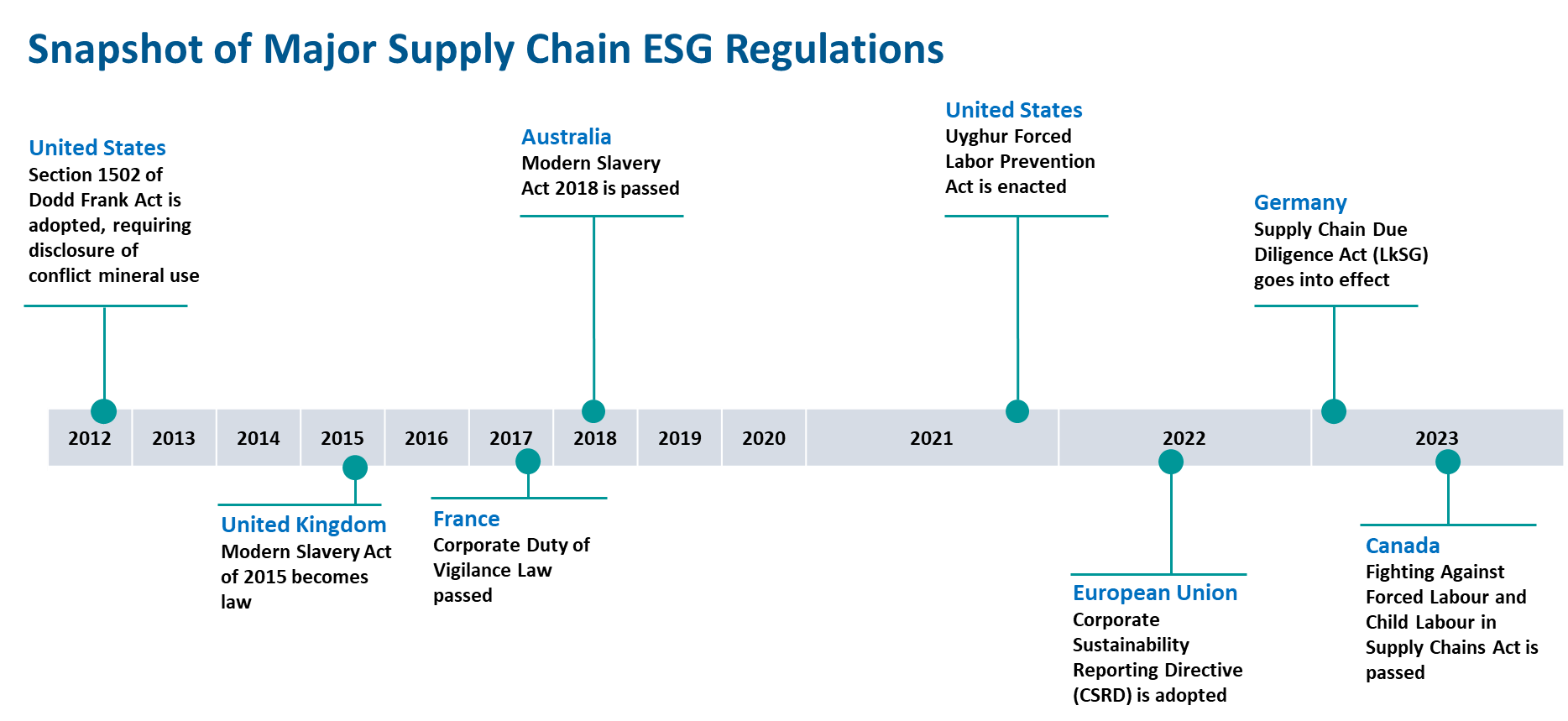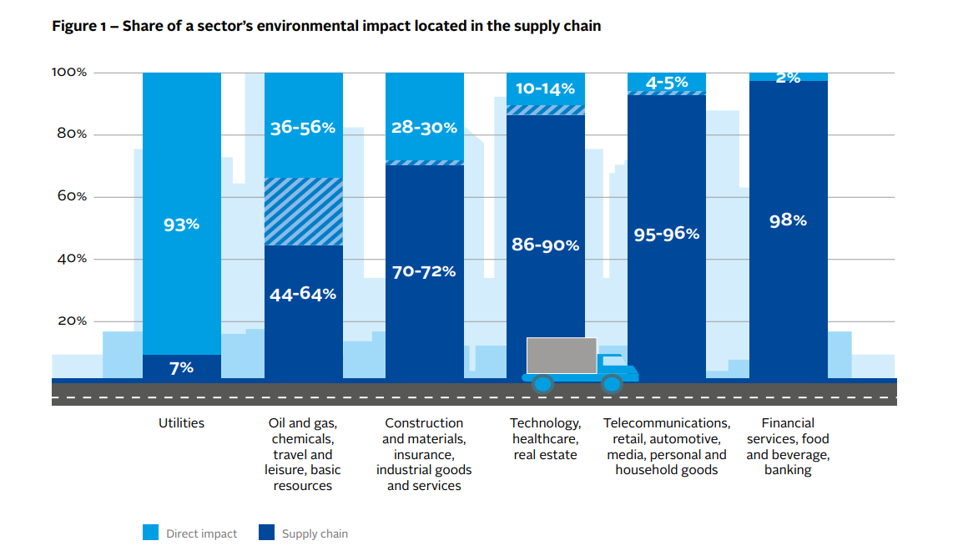
SERVICE SPOTLIGHT
Three Reasons Why A Sustainable Supply Chain Should Be Your Next Priority
By Aditi Busgeeth, Senior Analyst, Third Economy, January 2024
These days, companies are asked to meet many sustainability expectations, from incorporating new reporting frameworks to gunning for top marks from unpredictable ESG rating agencies. In the swirl, one aspect is often overlooked and undermanaged: impacts from a company’s supply chain.
A responsible procurement strategy means taking the lead on various issues, from child labor to conflict minerals to emissions from shipping and distribution. That’s why forward-thinking companies recognize the need to extend their ESG commitments beyond internal operations. We’ll discuss why a sustainable procurement strategy is a must-have in 2024.
Why Should Companies Integrate ESG Into Their Supply Chain Strategy?
- FOMO: Fear of missing out (on important information about your business and its impacts)
The impact that a company can have through its supply chain is substantial. External spend with suppliers constitutes an estimated 40 to 80 percent of a company’s total cost. As a result, a responsible procurement strategy can be a competitive advantage, a way to mitigate risk and increase resilience against disruptions, and a lever to increase a company’s social and environmental impact.
When it comes to managing your company’s carbon footprint, your Scope 1 and Scope 2 greenhouse gas emissions are only a small part of the picture. Why? Most of your organization’s total environmental impact likely lies within the supply chain. According to CDP, Scope 3 emissions account on average for 75% of the total greenhouse gas emissions across all sectors. In sectors like technology, consumer goods, and financial services, more than 90% of the environmental impact is from the supply chain, as illustrated by TruCost below.
- Them’s the rules: anticipate increased regulatory focus on the supply chain in the coming years
If you’re motivated by compliance rather than impact, it’s important to know that laws and directives governing companies’ supply chain practices and required due diligence are proliferating. In 2022, the U.S. Securities and Exchange Commission (SEC) proposed rules on climate-related disclosures that would require many companies to report “material” Scope 3 emissions, in addition to Scopes 1 and 2. Several countries have also implemented regulations to improve human rights in the supply chain by requiring increased due diligence. Below we summarize some significant supply chain ESG regulations from the past decade.

- Green is the new black: consumers and investors are demanding sustainable practices in the supply chain
With a growing awareness of global challenges such as climate change, social inequality, and ethical sourcing, stakeholders are demanding transparency from the brands they support. The fashion industry, for example, has faced constant pressure for many years to improve its materials sourcing and labor practices in its supply chain. As a result, brands like Nike have faced public scrutiny and shareholder activism on working conditions in their supply chains, along with allegations of forced labor use.
Ignoring calls for increased responsibility risks reputational damage, including loss of brand value and social license to operate.
Companies that respond effectively to this scrutiny can tap into the growing demand for sustainable goods and services, appealing to younger generations like Gen-Z and millennials with substantial purchasing power.
The surge in demand for supply chain transparency is not solely driven by consumer preferences; it also significantly impacts companies that are mainly business-to-business (B2B). B2B entities are increasingly prioritizing partnerships with companies that demonstrate a commitment to sustainability, ethical conduct, and responsible supply chains. By investing in a supply chain ESG strategy, B2B companies not only enhance their value proposition but also improve their ESG performance—important for access and cost of capital—and elevate their standing in Requests for Proposals (RFPs).
Sold on the importance of responsible procurement strategy but unsure where to start? Stay tuned for next week’s article, in which we highlight the critical steps to successfully integrating ESG considerations into your supply chain. Can’t wait? Get in touch with our team so we can match your needs to the right sustainability service today.
 Source:
Source: 